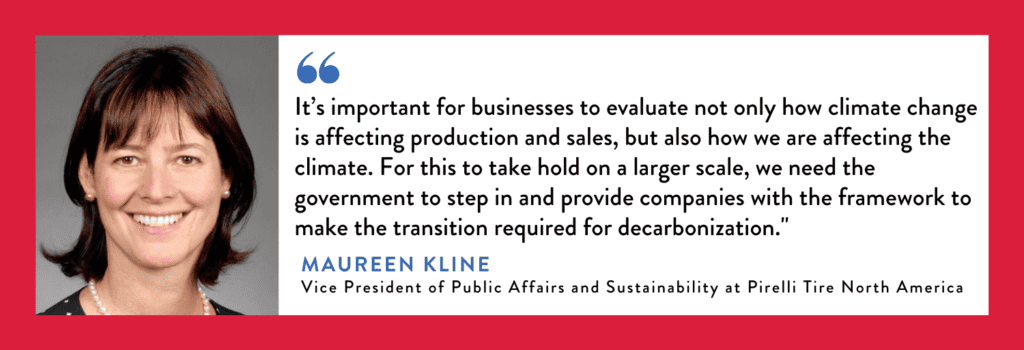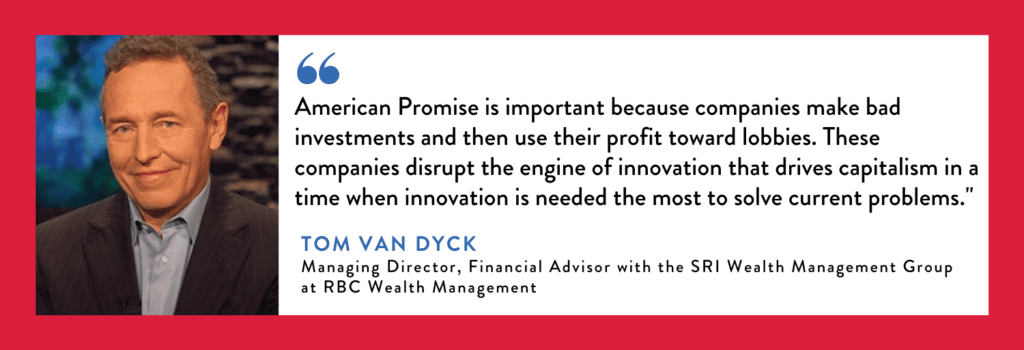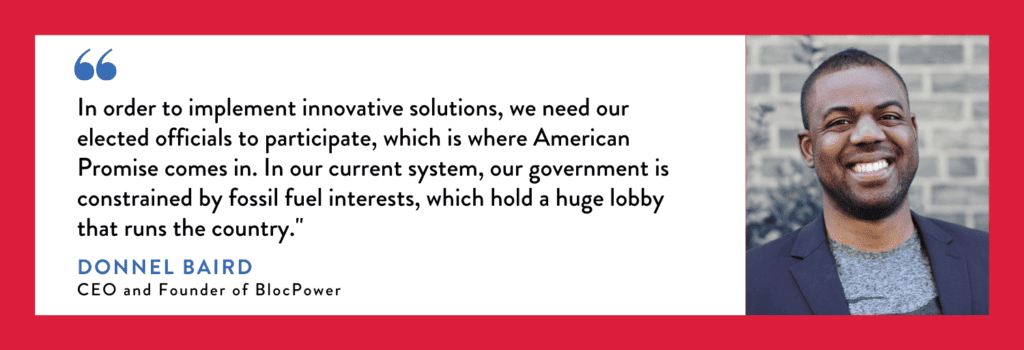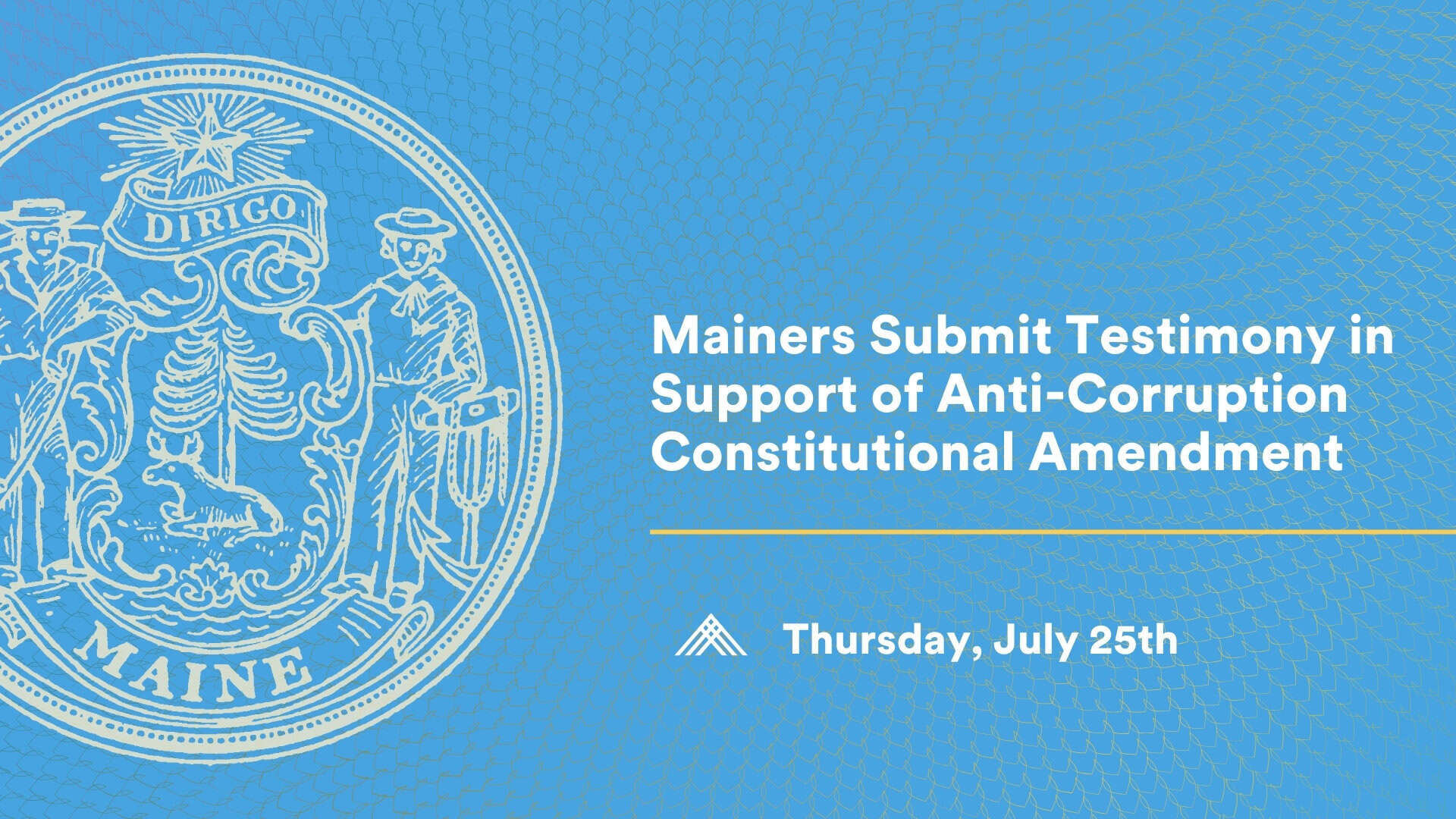The best business leaders know that a global economic system that incentivizes environmental destruction, social injustice, economic inequality, and human rights compromises isn’t sustainable. These business leaders are lighting the path toward a more hopeful future and a better way to do business.
These business leaders also know that one of the biggest obstacles to transformation is the systemic corruption of unregulated, out-of-control political spending. It locks in broken, unsustainable business models, creates an unlevel playing field, stifles innovation, and endangers a free economy, our democracy, and our living planet.
More and more business people are joining American Promise to connect the work of economic, environmental, and political renewal, motivated by urgent concern about climate instability and how corrupt dollars pollute both our politics and our planet.
In this article, business leaders Maureen Kline, Vice President of Public Affairs and Sustainability at Pirelli Tire North America, Donnel Baird, CEO and Founder of BlocPower, and Tom Van Dyck, Managing Director, Financial Advisor with the SRI Wealth Management Group at RBC Wealth Management, discuss key developments in socially responsible business and investing.

What is “corporate political responsibility”?
Maureen Kline: At Pirelli, corporate political responsibility is part of our stakeholder model of sustainability. We have a global ban on campaign finance to preserve the integrity of how we engage with policymakers.
Another term that has been gaining popularity recently is “double materiality.” To ensure that investors can make informed decisions, companies are required to disclose factors considered “material,” or important to the company’s success or failure, which normally centers on a company’s profitability. “Double Materiality” came about to incorporate transparency of a company’s impact on people and the planet, its social and environmental impact, to report climate risks to investors.

Why is environmental impact relevant to investors and the health of our free market economy?
Tom Van Dyck: A capitalist economy is one that values free markets, which means subsidies are not favorable because they are not fair. In a free-market economy, pollution is a subsidy.
Capitalism does two things well: It exploits the environment better than anything else on the planet, and it spurs innovation better than anything else on this planet.
Exploitation is the darker side of capitalism, and I came into this field to advocate for socially responsible investing because we can’t have people externalizing the cost of profit through pollution and exploitation. The shareholders don’t pick up the tab when pollution happens. The American taxpayer picks up the tab when these corporations exploit rather than innovate solutions to our most pressing problems.

Can you share an example of how this plays out in the real world?
Donnel Baird: BlocPower is a Brooklyn-based tech startup focused on decarbonizing buildings. Similar to how Tesla ripped the fossil fuel engine out of vehicles, we want to rip the fossil fuel engine out of 125 million buildings across America. Buildings use gas and oil for heating, cooling, and cooking, but it’s possible for us to use 100% green electricity to create a better environment.
We built a technology platform that allows us to invest in decarbonization by building digital models of every building in America and offering free decarbonization plans to decrease energy costs and shift us toward renewable energy.
But in order to implement innovative solutions, we need our elected officials to participate, which is where American Promise comes in. In our current system, our government is constrained by fossil fuel interests, which hold a huge lobby that runs the country and plunges us into wars.
For us to fight against climate change, we need American Promise and the For Our Freedom amendment. How can we advance clean energy solutions for future generations when it threatens the pockets of our policymakers?
Do you agree our current system stifles innovation?
Tom Van Dyck: Yes, American Promise is important because companies make bad investments and then use their profit toward lobbies. These companies disrupt the engine of innovation that drives capitalism in a time when innovation is needed the most to solve current problems. Using shareholder capital to invest in innovative solutions to our current crisis should be the goal of current policymakers right now.
How does this affect how companies can work to mitigate climate change?
Maureen Kline: It’s important for businesses to evaluate not only how climate change is affecting production and sales, but also how we are affecting the climate. For this to take hold on a larger scale, we need the government to step in and provide companies with the framework to make the transition required for decarbonization.







